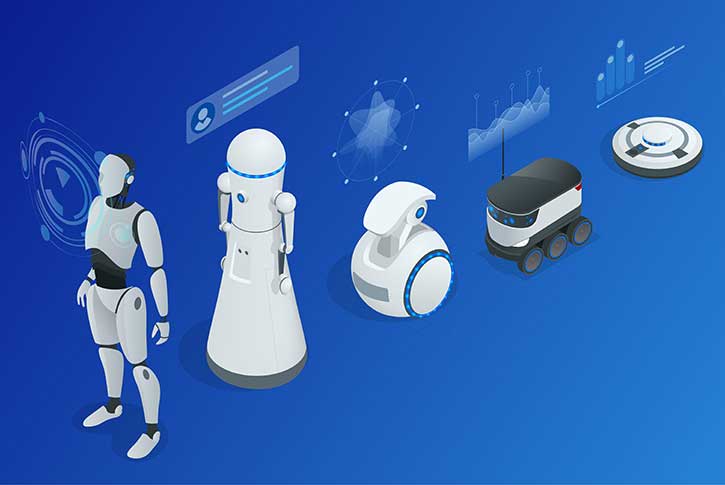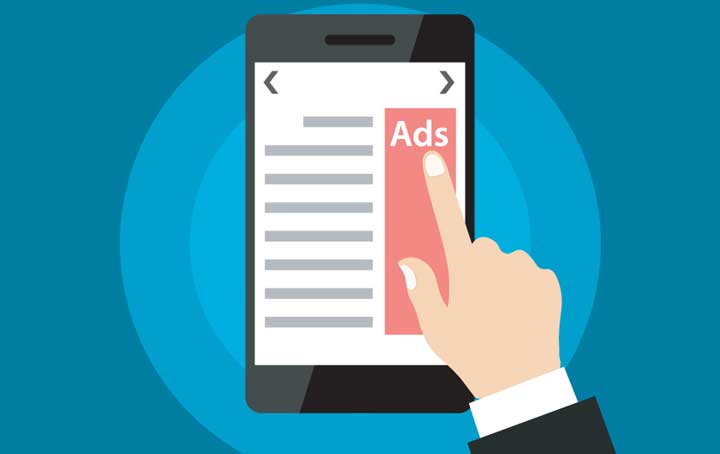Share This
Embracing Change: AI’s Impact on Google Ads & What Lies Ahead

Artificial intelligence (AI) is rapidly transforming digital advertising just as it is revolutionizing numerous other sectors. Large language models are seemingly being integrated into every new app that hits the market. What can this new technology do for your brand?
A large language model (LLM) is like a smart computer program that can read and understand a lot of information. It uses this knowledge to write summaries, create new content, and make predictions about what might come next. Examples of this type of AI include ChatGPT and BERT.
LLMs and AI provide marketers with powerful tools to streamline processes, target the right audience, and meet customer preferences in the fast-paced world of digital marketing. Companies can leverage LLMs to analyze historical data, predict customer behavior, track sales trends, and gain insights into consumer preferences. Additionally, they can develop chatbots and virtual assistants that deliver quick responses, personalized recommendations, and assistance in purchasing decisions, resulting in improved customer satisfaction and faster support.
LLMs play a crucial role in advertising by enabling companies to personalize marketing messages and content for each individual. This customization is based on their interests, preferences, and previous interactions, which increases their engagement and likelihood of making a purchase. This feature alone can come in handy when creating Google Ads, one of the world’s most popular advertising platforms.
Google Ads enables businesses to reach a vast audience by leveraging the global popularity of Google, the most widely used search engine. It grants access to a large pool of potential customers who are actively searching for products or services.
Dive into this article to learn more about AI’s impact on Google Ads and what lies ahead for the digital marketing landscape.
LLMs and AI in Google Ads
Marketers can use LLMs and AI to analyze vast amounts of data, including user demographics, online behavior, interests, and preferences. This thorough analysis empowers advertisers to precisely target specific audience segments, ensuring their ads are delivered to the right people at the most opportune times.
Benefits of using LLMs and AI in Google Ads
Enhanced efficiency
LLMs and AI bring significant clarity and efficiency to Google Ads campaigns by taking charge of crucial tasks like audience segmentation, ad placement optimization, and bidding strategies. This automation frees advertisers from manual execution, allowing them to concentrate on strategic decision-making. By eliminating labor-intensive processes and automating repetitive tasks, LLMs and AI empower advertisers to efficiently manage and expand their Google Ads campaigns, driving better results and maximizing their advertising efforts.
Improved ROI (Return on Investment)
One of the key advantages of LLMs and AI is their ability to facilitate real-time optimization of ad campaigns. Through constant analysis of data and performance metrics, AI algorithms automatically make precise adjustments to ad placements, bids, and targeting parameters. This dynamic optimization guarantees that ads are showcased to the most appropriate audience, greatly enhancing the potential for conversions and overall campaign success. Marketers can maximize the impact of their campaigns and achieve optimal results in real time.
Better decision-making
By channeling the power of predictive analytics, LLMs and AI use historical data to generate logical predictions about future user behavior and ad performance. This lets advertisers make well-informed, data-driven decisions in optimizing their ad strategies and efficiently allocating their budgets. They can maximize the effectiveness of their campaigns, make strategic adjustments, and allocate resources wisely to achieve optimal results.

Latest AI Features in Google Ads
Smart Bidding
Smart Bidding is a group of four automated bid strategies that use AI to optimize for conversions or conversion value in every auction. Through the analysis of extensive data, AI enables predictions regarding the impact of various bid amounts on conversions or conversion value. This enables advertisers to modify performance targets and settings to align with their specific business objectives. Advertisers can maximize the effectiveness of their bidding strategies, amplify campaign performance, and achieve their desired conversion outcomes.
Types of Smart Bidding strategies and how AI powers them
Enhanced CPC
Enhanced CPC (Cost-Per-Click) is a feature that helps you get more conversions when using manual bidding in Google Ads. It works by automatically adjusting your bids for clicks that are more likely to result in a sale or conversion on your website. This strategy focuses on keeping your average CPC below the maximum CPC you set.
Target CPA
Target CPA bidding is a Smart Bidding strategy that helps you get more customer actions, like conversions. When you use Target CPA, you choose the amount you want to spend on average for each conversion. Whenever a customer searches on Google for something related to your product or service, Google Ads uses your Target CPA to decide how much to bid in the auction. It picks a bid that has a good chance of getting you the conversions you want.
Target ROAS
This strategy looks at each user’s search for the products or services you advertise and smartly predicts how valuable they could be for you. The AI then automatically changes your bids for those searches to make the most of your investment and get the best results possible.
Maximize Conversions
With Maximize Conversions bidding in Google Ads, the system looks at your campaign’s past performance and considers the signals present when your ad has a chance to show up. It uses advanced technology to figure out the best bid for each opportunity. The AI adjusts your bids in real-time to help you get the most conversions possible within your budget. In simpler terms, Maximize Conversions bidding helps you automatically find the sweet spot for bidding on ads.
Responsive Search Ads
Responsive search ads allow marketers to create ads that can adapt and display more relevant messages to their customers. When creating a responsive search ad, advertisers can enter multiple headlines and descriptions. Google Ads then automatically tests different combinations over time and learns which combinations perform the best. By adjusting the ad’s content to closely match the search terms used by potential customers, responsive search ads have the potential to augment the performance of advertising campaigns.

Future AI Features Announced for Google Ads
Image extensions
Also known as “image assets,” this feature lets marketers upload visually appealing and relevant images to complement their text ads. Including captivating visuals of products or services can boost the performance of advertisers’ campaigns. AI can help companies analyze data to create visuals that resonate with their target audience.
Automated ad suggestions
Companies that advertise in specific languages can benefit from receiving automatic ad suggestions. These suggestions are the result of a collaborative effort between human review and machine learning. By analyzing pertinent data from the user’s account, including existing ads, assets, and landing pages, Google generates these suggestions. Google also takes into account additional factors such as keywords to increase the effectiveness of the ad copy. The primary objective of this process is to offer advertisers beneficial recommendations that assist them in achieving their campaign objectives.
Advanced audience targeting
Advanced audience targeting is a Google Ads feature that lets marketers choose their target audience based on the topics they are most interested in. This gives them tighter control over the timing, placement, and audience for their ads. Google’s AI can identify new audience segments that have a higher likelihood of converting.
Challenges and Concerns Related to AI in Google Ads
Data privacy and security
Ensuring data privacy and security is a major concern when it comes to AI in Google Ads. The AI algorithms used in ad campaigns rely on large volumes of data to make predictions and optimize performance. Companies that prioritize protecting this data from unauthorized access will comply with regulations and build consumer trust.
Over-reliance on automation
Balancing automation and human involvement is necessary to overcome the challenge of over-reliance on automation. Although AI can raise efficiency, there is a risk of losing human control and oversight. Marketers must monitor and validate the outcomes of AI-driven optimizations to ensure they do not run counter to their companies’ business goals and brand identities.
Balancing human expertise and AI-powered insights
Expanding on the previous point, it is important to recognize that AI algorithms have exceptional capabilities when it comes to analyzing vast amounts of data. Nevertheless, they may fall short in terms of possessing the same depth of understanding and contextual awareness as human experts. Marketers should view AI as a helpful tool that complements human decision-making, rather than solely relying on it. The human element and creativity are indispensable factors that must not be underestimated. While AI algorithms excel in data analysis, they often struggle to replicate the distinct perspectives and innovative thinking that humans bring to the equation.

Embrace Tomorrow’s Changes Today
LLMs and AI have become increasingly prevalent in the realm of Google Ads, offering a range of benefits that can change how companies handle their ad campaigns. They can streamline tasks, optimize ad targeting, and automate bidding strategies. From Smart Bidding to advanced audience targeting, Google continuously introduces new AI-powered features that can invigorate ad performance. Keeping pace with AI developments allows marketers to maintain their marketplace footholds and stay ahead of the competition. AI doesn’t look like it’s going away any time soon. Take note of how it can expand your growth. Tap into its power to gain valuable insights, make informed decisions, and achieve better results.